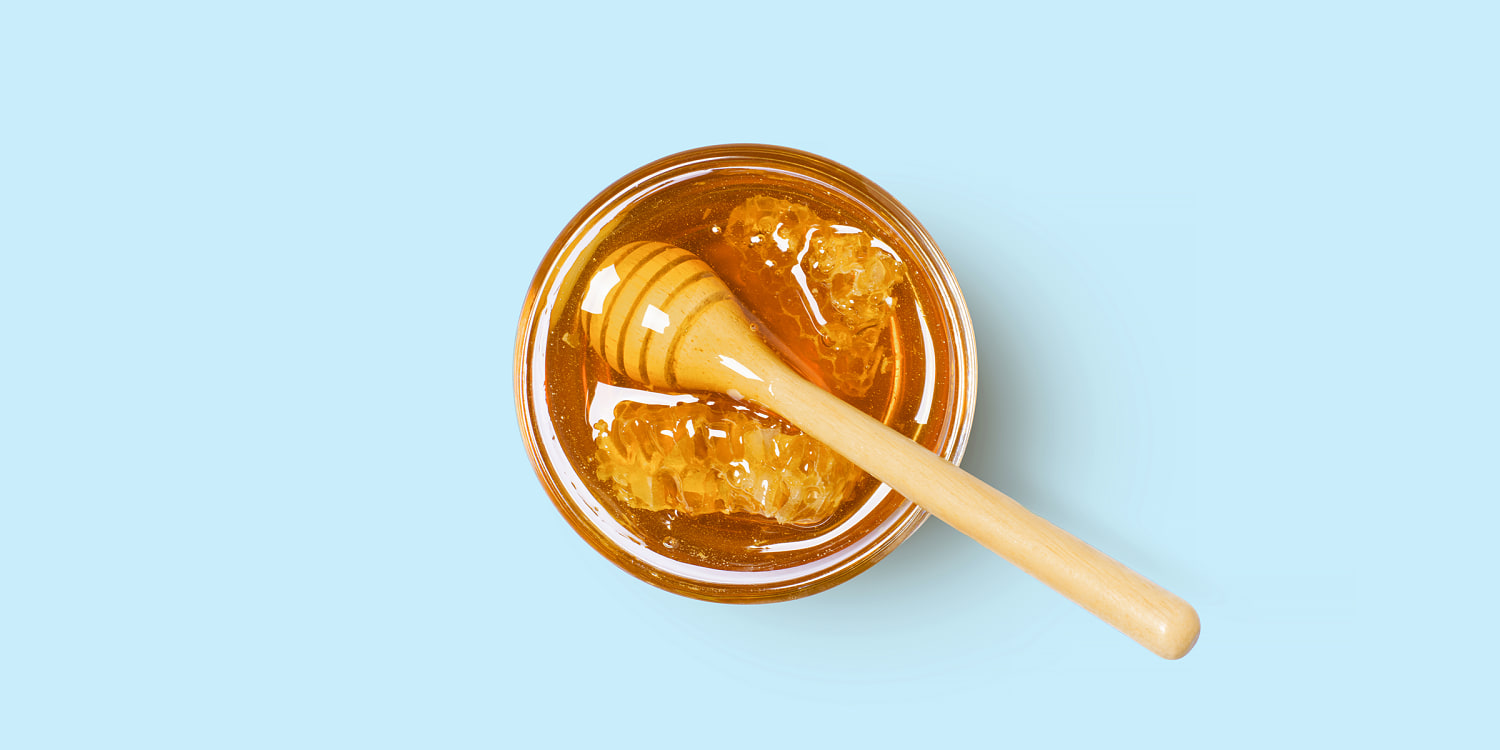If you experience seasonal allergies, you might’ve heard that eating honey can help curb or even cure the unpleasant symptoms. The idea is that the pollen in honey can help desensitize the body to the pollen outside and build your immunity. Seasonal allergies (also called seasonal allergic rhinitis or hay fever) occur when pollen in the air causes the body to release histamines, per .
This triggers symptoms like sneezing, runny nose, watery eyes, and itchiness in the mouth, throat, eyes or ears. There are three pollen seasons, which occur during different parts of the year depending on where you live, according to the . The dates may vary, but pollen is especially overwhelming during the spring, when trees pollinate; in the summer, when grass releases pollen; and finally in the fall, when weeds, particularly ragweed, pollinate.

While turning to honey might seem effective and delicious, experts say using it as a defense against pollen might not be as helpful as you might think. No, honey does not help with seasonal allergies or treat allergic rhinitis, Dr. Dave Stukus, a professor of clinical pediatrics in the division of allergy and immunology at Nationwide Children’s Hospital, tells TODAY.
com. There is no evidence showing that honey relieves seasonal allergy symptoms when given to allergy-sufferers, he says. Moreover, not all pollen is the same.
“Honey is made by honey bees, which collect a very different type of pollen than what causes allergy symptoms,” says Stukus. The pollen that bees collect — which ends up in the nectar that turns into honey — comes from flowers, he adds, and this pollen is very large, so it doesn’t spread around in the air. The pollen that causes seasonal allergy symptoms comes from trees, grasses, weeds and ragweed, Stukus adds, which is smaller and spreads easily through the air.
“It is a common misconception that honey helps you get desensitized or tolerant of airborne allergens, specifically pollen,” Dr. Purvi Parikh, an allergist and immunologist at NYU Langone Health, tells TODAY.com.
Stukus says the honey myth may be rooted in immunotherapy, a long-term treatment for allergic rhinitis. “We’ve been doing allergy shots for over 100 years, where we expose people to very small amounts of pollen over time, and it desensitizes them,” says Stukus, but eating honey won’t do much, if anything, at all. It doesn't make a difference if the honey is local, raw, organic or unfiltered.
That’s just marketing, say Stukus. The idea that local honey can help with allergies or work as an antihistamine is a myth. “Even if the honey is sourced from the exact neighborhood somebody lives in and around the same plants causing their allergy symptoms, it simply doesn’t matter,” he adds.
So no, honey won’t relieve or cure your pollen allergy symptoms. But it can soothe and coat a sore throat, Parikh says. Given that honey can't help with seasonal allergies, the quantity someone eats likely won't make a difference, according to the AAAI.
However, if you want to give a shot anyway, reported that the recommended dose is a spoonful a day or every other day. But don't wait until your symptoms begin. Start eating a spoonful of honey “a few weeks before you had symptoms last year,” Dr.
Timothy Wong, board-certified family medicine doctor, told CNBC. There are two groups of people who shouldn't turn to honey for allergy relief. The first is children under 12 months.
The advises against mixing honey into food or drinks consumed by children less than 1 because honey can cause infant botulism. A bacteria found in honey can grow and release toxins into infants' intestines. The second group is anyone allergic to bees or wasps.
“There are some cases where people who have bee allergies can also get allergies from honey, so that’s just something to be aware of,” Wong said. The first two lines of defense doctors recommend are nasal steroid sprays and antihistamines, . And if you have itchy eyes, anti-histamine eye drops are also effective.
Some antihistamines, eye drops and nasal sprays can be used as needed, but certain ones shouldn't be taken more than once or twice per day. So, speak to your doctor about the best option for you and how to best use it. If you're looking for natural remedies, there are plenty that are backed by research and cost-effective.
Some options include: closing your windows to keep pollen from circulating in your home, running you air conditioning unit (it's a bonus if you have air filters in them), and washing your bedding weekly in hot water to flush out the pollen that might get trapped in the fibers. Caroline Kee is a health reporter at TODAY based in New York City. She covers a range of medical news, consumer health, and wellness topics.
Health Reporter/Editor.
Health

Local honey is a popular natural treatment for seasonal allergies. Does it work? Doctors explain

If you're looking for a remedy for your allergies, you might have heard that honey is effective. Turns out, it might not help as much as you think, experts say.















